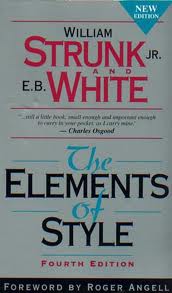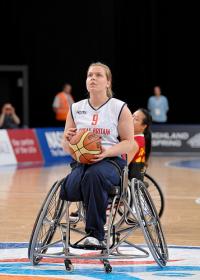Main Menu
Latest Blog Entry
User login
The Elements of Style: positive language in Coaching.
 “It is better to express even a negative in positive form.”
“It is better to express even a negative in positive form.”
So say Strunk and White in their excellent little book on writing: “The Elements of Style.“
“Consciously or unconsciously the reader (athlete?) is dissatisfied with being told what is not; the reader wishes to be told what is.”
This has an important impact on the language we use when communicating with our athletes, whether in writing or speaking.
Look at the differences here:
not honest dishonest
not important trifling
did not remember forgot
did not pay atttention to ignored
did not have much confidence in distrusted
When coaching, it is not just the substance that must be right, but also the style of the delivery. Language and clarity of message are both important in ensuring clear and effective communication.
Other negatives hold more authority.
“I never warm up using foam rollers” compared to “I am not used to warming up with foam rollers”. The use of never offers a strong message.
There are times when you need toualifying conditional words make the message sound weak or indecisive.
“You could try to lift faster” “You will lift faster”
“I would like to win the race.” “I shall win the race.”
Save the use of would, should, could, may, might and can for coaching situations where there is uncertainty. There will be times when you give your athlete the chance to make decisions on their own; there will be a right outcome, but more than one way to get there.
An athlete has a problem getting up in the morning. “You could try going to bed earlier, or you might have two alarm clocks in the room.”
Language does matter.
I am a dabbler in the use of language, but I recognise its importance. If your athletes are not repsonding to your messages, have a critical look at the way you frame your coaching points.
I recommend elements of style for all aspiring writers. A Thesaurus is a useful tool for finding antonyms to help improve our Coaching lanaguage.
Client Testimonials
 Judith Hamer – GB Wheelchair Basketball, Paralympian
Judith Hamer – GB Wheelchair Basketball, Paralympian
I have worked with James for three years now. James's attitude to training has changed my approach to my training session and sport making me more focussed and organised to get as much as I can out of each session. The improvements I have made with my fitness, core and my psychological approach to training have been largely down to my sessions with James
More


Comments
[…] regular reader will know that I have been working hard on the writing elements of communication, and also the verbal cues that I use when […]
[…] setting your goals, it is also important to think of positive (towards i.e. winning) goals rather than negative (away from i.e not losing) […]
[…] Using correct and relevant cues with positive statements. […]